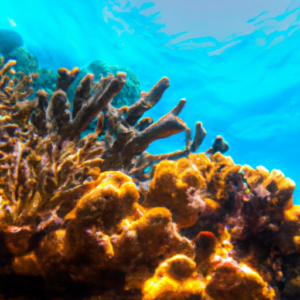Are you planning travel in Bermuda? If so, you’ll be glad to know that there are several simple ways you can make your travel experience more eco-friendly while exploring this beautiful island paradise. From supporting local businesses to practicing responsible waste management, this article shares 10 handy tips for sustainable and responsible tourism in Bermuda, ensuring you can enjoy your trip while minimizing your environmental footprint.
Table of Contents
ToggleTravel in Bermuda: Choosing Sustainable Accommodations
When planning your eco-friendly trip to Bermuda, one of the first things you should consider is choosing sustainable accommodations. Look for eco-certified hotels that have been recognized for their commitment to environmental conservation and sustainability practices. These certifications ensure that the hotel meets specific criteria in areas such as energy and water conservation, waste management, and community engagement. By staying at eco-certified hotels, you can have peace of mind knowing that your accommodation is committed to minimizing its environmental impact.
In addition to eco-certified hotels, you can also opt for accommodations with energy-efficient practices. These may include the use of renewable energy sources, energy-efficient lighting and appliances, and smart technology systems to regulate energy usage. By choosing such accommodations, you can contribute to reducing greenhouse gas emissions and promoting sustainable energy consumption.
For a more immersive and nature-focused experience, consider staying in eco-lodges or guest houses. These accommodations are usually nestled within natural surroundings and strive to maintain a low carbon footprint. They often incorporate environmentally-friendly practices such as rainwater harvesting, organic gardens, and the use of locally-sourced materials. Staying in eco-lodges or guest houses allows you to connect with nature while supporting sustainable tourism initiatives.
Lastly, choose accommodations that actively support local conservation efforts. These may include partnering with local environmental organizations, participating in wildlife conservation projects, or implementing sustainable waste management practices. By staying in accommodations that prioritize conservation, you can directly contribute to preserving Bermuda’s unique ecosystems and supporting the local community.
Minimizing Your Carbon Footprint
Reducing your carbon footprint is another crucial aspect of eco-friendly travel in Bermuda. To lessen the environmental impact of your journey, try to take direct flights whenever possible. This minimizes the number of take-offs and landings, which are the most carbon-intensive parts of air travel. Direct flights not only save time but also help to reduce greenhouse gas emissions.
Once you arrive in Bermuda, make use of public transportation or choose to walk and bike whenever feasible. The island has a well-connected network of buses and ferries, making it easy to explore without relying on private vehicles. By utilizing public transportation, you can help reduce traffic congestion and lower carbon emissions.
If you prefer to have more flexibility in your travels, consider renting electric or hybrid vehicles for island exploration. These vehicles produce fewer emissions than traditional gasoline-powered cars and help to promote the adoption of sustainable transportation options. By choosing to rent electric or hybrid vehicles, you can enjoy the freedom of exploring Bermuda’s beautiful landscapes while minimizing your carbon footprint.
To further offset your carbon emissions, participate in carbon offset programs. These programs allow you to invest in projects that reduce or capture greenhouse gas emissions, such as reforestation or renewable energy initiatives. By purchasing carbon offsets, you can effectively neutralize the carbon emissions generated during your travel, making your trip more sustainable and environmentally friendly.
Supporting Local Conservation Initiatives
Engaging with local conservation initiatives is a fantastic way to contribute to Bermuda’s environmental preservation efforts. Consider participating in beach and coastal clean-up activities organized by local organizations or hotel initiatives. These clean-ups help to keep Bermuda’s stunning beaches and coastal areas free from plastic waste and other pollutants.
Another way to support local conservation is by participating in conservation-focused tours and activities. These tours often educate participants about Bermuda’s unique ecosystems and the importance of protecting them. From snorkeling tours to bird-watching excursions, these activities provide fun and educational experiences that encourage sustainable tourism practices.
Supporting local wildlife preservation organizations is another vital aspect of eco-friendly travel. Look for organizations or sanctuaries that work towards the protection and rehabilitation of Bermuda’s native wildlife. By visiting these organizations, you can learn more about the local fauna, contribute to conservation efforts, and even actively participate in wildlife preservation activities.
While engaging in conservation initiatives, it’s essential to learn about and respect local environmental regulations. Bermuda has specific guidelines to protect its natural resources, including restrictions on fishing, marine activities, and wildlife disturbance. By being aware of and following these regulations, you can ensure your actions align with sustainable tourism practices and minimize your impact on Bermuda’s delicate ecosystems.
Reducing Plastic Waste
Plastic waste is a significant global environmental issue, and Bermuda is no exception. To help reduce plastic waste during your visit, take a few simple steps to minimize your plastic footprint. First, bring a reusable water bottle and make use of water stations to refill it. This way, you can stay hydrated while avoiding the need to purchase single-use plastic bottles.
Carrying reusable bags for shopping and groceries is another effective way to reduce plastic waste. By bringing your own bags, you can decline the use of plastic bags offered by retailers. This small change can make a big difference in the amount of plastic waste generated.
When dining out or purchasing snacks, be mindful of avoiding single-use plastics. Say no to plastic straws, cutlery, and unnecessary packaging. By consciously making choices that minimize plastic usage, you contribute to reducing the demand for single-use plastics.
Lastly, make sure to properly dispose of any plastic waste you do generate. Be mindful of recycling bins and garbage receptacles, and do your part to keep Bermuda’s environment clean and plastic-free. Remember, every small action adds up to make a significant impact.
Respecting the Marine Environment
Bermuda is renowned for its stunning marine environment, including vibrant coral reefs and diverse marine life. It is vital to respect and protect this precious resource as you explore the island’s coastal areas. Refrain from touching, feeding, or disturbing marine wildlife, including fish, turtles, and coral. Admire these creatures from a distance and observe them in their natural habitats. Respecting their space helps to preserve their natural behaviors and habitats.
One way to protect coral reefs is by using reef-safe sunscreen. Many traditional sunscreens contain chemicals that are harmful to coral reefs and other marine life. Look for sunscreen brands specifically labeled as reef-safe, which use ingredients that are less damaging to the environment. By choosing reef-safe sunscreen, you can protect your skin and contribute to the preservation of Bermuda’s exquisite coral reefs.
When visiting Bermuda’s beaches, ensure you leave no trace. Avoid littering or leaving any waste behind, including food wrappers, plastic bottles, or cigarette butts. Dispose of your waste properly in designated garbage bins or, if necessary, take it with you until you find suitable disposal facilities. By being responsible with your waste, you help maintain the pristine beauty of Bermuda’s beaches for future generations.
Additionally, consider participating in coral reef restoration initiatives. Several organizations in Bermuda are actively involved in coral reef conservation and restoration projects. These initiatives often allow tourists to get involved in reef planting or monitoring activities, helping to rebuild the island’s coral reefs and promote their recovery. By participating in these initiatives, you contribute to the long-term preservation of Bermuda’s marine environment.
Choosing Sustainable Dining Options
Sustainable dining options play a significant role in eco-friendly travel. When selecting restaurants in Bermuda, opt for those that prioritize the use of local and organic ingredients. These establishments support local farmers and producers, reducing the carbon footprint associated with transporting food long distances. By supporting restaurants that use local and organic ingredients, you can enjoy delicious meals while minimizing the environmental impact of your dining choices.
Another important consideration when dining in Bermuda is choosing seafood from sustainable sources. Check menus for labels or certifications such as the Marine Stewardship Council (MSC) certification, which ensures that the seafood has been responsibly caught or farmed. By selecting sustainable seafood options, you support fisheries and aquaculture practices that are in harmony with the marine environment.
For those looking for vegetarian or vegan meals, Bermuda offers a range of options. Choosing plant-based meals reduces the demand for meat and other animal products, which have a higher environmental impact. By opting for vegetarian or vegan meals, you support a more sustainable food system and contribute to reducing greenhouse gas emissions associated with animal agriculture.
To further reduce food waste, order conservatively when dining out. Start with smaller portions and only order more if necessary. Remember that you can always ask for a take-out container if you have leftovers. By minimizing food waste, you minimize the resources and energy that go into producing, transporting, and disposing of wasted food.
Exploring Nature Responsibly
Exploring Bermuda’s natural wonders is undoubtedly one of the highlights of your visit. To ensure you have a positive impact on the environment, follow these guidelines for responsible and sustainable nature exploration:
First and foremost, stay on designated trails and respect protected areas. These areas are often set aside to preserve delicate ecosystems, rare species, or historically significant landmarks. By staying on designated trails, you avoid trampling delicate vegetation and help protect the ecosystems that make Bermuda so unique.
While exploring, avoid excessive noise and disturbances to wildlife. Keep your voices down and avoid sudden or disruptive movements that may startle or stress the local fauna. By being considerate of the wildlife, you can observe their natural behaviors and maintain the tranquility of Bermuda’s natural environments.
Never remove or disturb any plants or wildlife you come across. It is important to remember that these species are part of an intricate and fragile ecosystem. Removing or disturbing them can have lasting effects on their populations and the overall health of Bermuda’s natural habitats.
If you enjoy photography, follow guidelines for responsible wildlife photography. Keep a safe distance from animals and use zoom lenses to capture close-ups without causing any disturbance. Also, avoid using flash photography, as it can disorient or stress animals. By practicing responsible wildlife photography, you can capture beautiful memories while ensuring the well-being of the subjects.
Engaging with the Local Community
Engaging with the local community is not only an opportunity to learn about Bermuda’s culture but also an important aspect of sustainable and responsible tourism. Take the time to learn about Bermuda’s culture and traditions, as this knowledge will enhance your travel experience. Whether it’s attending cultural festivals, visiting historical sites, or participating in local celebrations, immersing yourself in the local culture promotes cultural exchange and mutual understanding.
Supporting local artisans and craftspeople is another way to engage with the community while contributing to sustainable tourism. Seek out local markets or shops where you can purchase handmade products, artwork, or crafts. By supporting local artisans, you help sustain traditional crafts and boost the local economy.
Participating in community-based tourism initiatives is an excellent way to learn about Bermuda, meet locals, and contribute to the community. Look for tours or activities that are organized and led by local guides or organizations. These community-based initiatives often offer unique insights and authentic experiences, while also directly benefiting the local economy.
Lastly, always be respectful of local customs and etiquette. Familiarize yourself with the cultural norms and practices of Bermuda, and be mindful of how your behavior may impact the local community. By showing respect and understanding, you can forge meaningful connections with the people of Bermuda and contribute to positive intercultural experiences.
Conserving Water Resources
Water conservation is a critical aspect of sustainable travel, especially in regions like Bermuda where fresh water resources are limited. To conserve water during your stay, practice the following habits:
Take shorter showers and turn off faucets when not in use. Conserving water in your accommodations helps reduce water usage and load on the local water supply. By keeping your showers efficient and minimizing unnecessary water use, you can make a significant difference.
Reuse towels and bed linens when possible. Most accommodations offer the option to reuse towels by hanging them up instead of placing them in the laundry. By adopting this practice, you reduce the amount of energy, water, and detergent used in laundering unnecessary linens.
Report any water leaks or wastage to your accommodations. If you notice any leaks or excessive water usage, inform the staff so that they can address the issue promptly. By reporting water-related problems, you help ensure that precious water resources are conserved and not wasted.
When participating in outdoor activities, such as snorkeling, be conscious of water conservation. Avoid unnecessary splashing or excessive water use when enjoying water-based activities. Be mindful of local water conservation efforts and follow any guidelines or restrictions that may be in place.
Leave No Trace
Lastly, but certainly not least, leave no trace. This principle urges travelers to minimize their impact on the environment while enjoying the beauty of Bermuda’s natural and historical landmarks. Here are some key ways to ensure you leave no trace during your visit:
Properly dispose of all waste, including cigarette butts. This means using designated trash bins or bringing your waste back with you if necessary. Cigarette butts, in particular, are often overlooked but can be harmful to the environment and wildlife. By properly disposing of all waste, you help keep Bermuda clean and protect its natural assets.
Pack out what you pack in. When exploring outdoor areas, especially more remote locations, remember to bring back everything you brought with you. This includes any food wrappers, water bottles, or other items that you may have used during your excursion. Leaving these items behind can harm the environment and disrupt the pristine beauty of Bermuda.
Avoid defacing or removing any natural or historical landmarks. Resist the temptation to carve your name or leave any permanent markings. These landmarks contribute to Bermuda’s cultural and natural heritage and should be respected and preserved for future generations. Take photographs and memories instead of removing or damaging anything from these sites.
Respect designated camping areas and fire regulations. If you plan to camp in Bermuda, make sure to use designated camping areas and follow any fire regulations that may be in place. Campfires can have a significant impact on the environment, so it’s essential to adhere to local guidelines to minimize any potential harm.
By adhering to the principles of leaving no trace, you can ensure that your visit to Bermuda has a minimal impact on the environment. By being mindful of your actions and conscious of the fragility of the island’s ecosystems, you can enjoy the beauty of Bermuda while preserving it for generations to come.
In conclusion, eco-friendly travel in Bermuda is not only an opportunity to have a memorable vacation but also a way to contribute to the conservation of the island’s unique environment and culture. By choosing sustainable accommodations, minimizing your carbon footprint, supporting local conservation initiatives, reducing plastic waste, respecting the marine environment, choosing sustainable dining options, exploring nature responsibly, engaging with the local community, conserving water resources, and leaving no trace, you can ensure that your visit to Bermuda aligns with sustainable and responsible tourism practices. Make a positive impact on the environment and leave a lasting legacy by adopting these eco-friendly travel tips during your trip to Bermuda.





